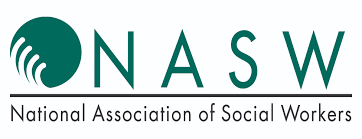|
|
South Asians in the United States: A Guide for Social Workers and Other Helping Professionals
|
|
LinkedIn
E-Mail
|
PLEASE READ BEFORE PURCHASING – You are registering for credits ONLY. In order to complete this course and claim the credits, you must separately purchase and read South Asians in the United States: A Guide for Social Workers and Other Helping Professionals, by Shreya Bhandari, then complete an exam. After you purchase the credits on the Social Work Online CE Institute, navigate to your My Products page and click the green Play button to purchase the publication from NASW Press. If you have already purchased the publication, you do not need to purchase it again. Once you have read the publication, navigate back to your My Products page and click the blue Get Certificate button to complete the exam. Please only attempt to complete the exam after you have separately purchased and read the publication.Currently, about 5.4 million South Asians live in the United States, with family origins in India, Pakistan, Bangladesh, Nepal, Sri Lanka, the Maldives, and Bhutan. When working with South Asian clients, it is crucial to understand their level of acculturation to the mainstream and the profound impact it has on their stress levels, coping mechanisms, and lived experiences. Hence, an intricate understanding of their immigration history, struggles with the immigration systems, and strong reliance on familial values is extremely important to serve them in a culturally responsive manner.
This unique book debunks the myth of the “model minority,” a term often used to describe South Asians in the United States due to the rapid financial and cultural success of some of the subgroups among South Asians. Instead, the authors have compiled comprehensive evidence-based literature on the prevalence, nature, and types of social issues that South Asians in the United States face, as well as how best to intervene. Beginning with a history of South Asians in the United States, the book explores the immigration patterns, religious diversity, and languages and cultures that shape this community. Using an intersectionality framework, the authors bring together previously fragmented research into this population and explain through case studies the topics particularly relevant to South Asians, including domestic violence, mental health, parenting, gender and sexual orientation, workplace barriers, and aging. Connections are made between intersectionality and postcolonialism, and the impact that various identities have on the health and well-being of this growing population.
When we directly address challenges that South Asians in the United States face at the intersection of age, gender, language, race, immigration, and culture-related barriers, we can decrease their marginalization, suffering, and vulnerability, and we offer understanding, sensitivity, and hope. This book is therefore an urgent call to action for social workers and other helping professionals to combat sources of oppression that have disproportionately affected the South Asian population in the United States—namely, racism, sexism, casteism, homophobia, and xenophobia.
Learning Objectives:
- Identify the intricacies of various social issues that South Asians experience in the United States.
- Apply the theory of intersectionality to South Asians in the United States and their social issues.
- Exemplify the important concepts on South Asians in the United States and social issues.
- Employ culturally responsive care to South Asians when helping in a variety of settings.
| Price | Early Registration | Standard |
|---|
| Non-Member | N/A | $35.00 | | Member | N/A | $27.00 |
|
Customers Who Bought This Item Also Bought
(Self Study)
Ethics and Integrated Health Care
(Self Study)
Understanding the Importance of Culturally Competent Mental Health Services and Barriers Faced by Diverse Communities
(Self Study)
Unpacking Cultural Humility in Harm Reduction: Giving Space for Mistakes
(CEtoGo)
The Lived Experience of Cultural Humility in Harm Reduction from a Client Perspective
(Self Study)
Guess Who's Come to the Playroom: An Examination of Clinical Response to Race, Culture, and Intersectionality in the Playroom
(Self Study)
Cultural Differences in Suicide Prevention, Assessment, and Response
(Self Study)
Connect to End COVID-19: What’s Next in the Pandemic, Through a Social Work Lens
(Self Study)
Do I Need to be an Addictions Expert? Engaging and Supporting People Who Use Drugs
(Self Study)
Animal Assisted Social Work
(Self Study)
Can an apple a day keep Alzheimer’s away?
(Self Study)
Death by a Thousand Nicks: Healing the Wounds of Racial Trauma
(Self Study)
The Principles of Cultural Humility in Harm Reduction
|
|

 Adding Registration, Please wait...
Adding Registration, Please wait...




